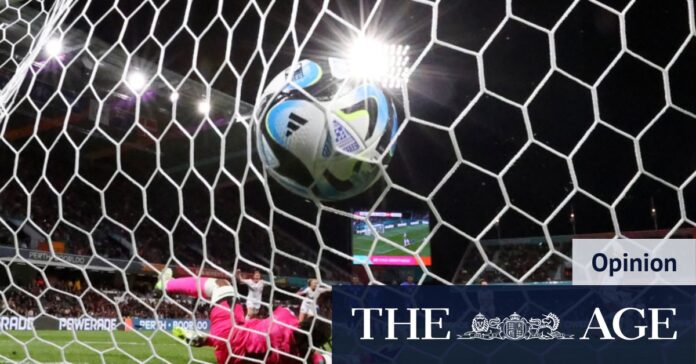[ad_1]
My goal last week was to survive presenting a training session on why goal setting doesn’t work so well in careers. A provocative enough subject you might think, and one where the presenter might expect some serious push-back, such is our ingrained attachment to goal setting.
When the audience is a group of elite athletes and professional sport performance and welfare coaches, such a venture might be termed courageous.

Goals are everywhere in the world of sport. But their simple rigidity should not be applied to the workplace.Credit: Reuters
Sport is literally a world full of goals. Whether it be Association Football, Rugby League, Australian Rules Football, Rugby Union, Hockey, Ice Hockey, Polo, Water Polo, Gaelic Football, Hurling, Netball, melee, polo cross, shinty, or quidditch.
Other sports use other terms masquerading as goals such as hoops in basketball, holes in golf, targets in archery, and dartboards. The common feature is that the aim of the game is to get some object such as a ball, puck, arrow or dart to arrive at a pre-determined destination – the goal or target.
In fact, the beauty of practically every sport is that they have clearly defined objectives, and relatively straightforward ways of determining whether the objective has been met.
Frequently it involves lines. Step over the line, and it is no-ball in cricket, and a fault while serving in tennis. I haven’t checked, but I presume swimming outside the lanes in swimming is against the rules, along with tackling.
Effective career plans or goals, are ones that can be regularly revised as circumstances dictate.
While it may seem that some sports go on forever, even cricket test matches last no more than five days. Whereas – except for Australian Prime Minister Frank Ford who lasted only seven days in the job in 1945 – when we consider careers, we are generally thinking of the longer term.
That hoary old interview question “where do you see yourself in five years time?” reflects the assumption that a career plays out over a much longer time frame.
[ad_2]
Source link


